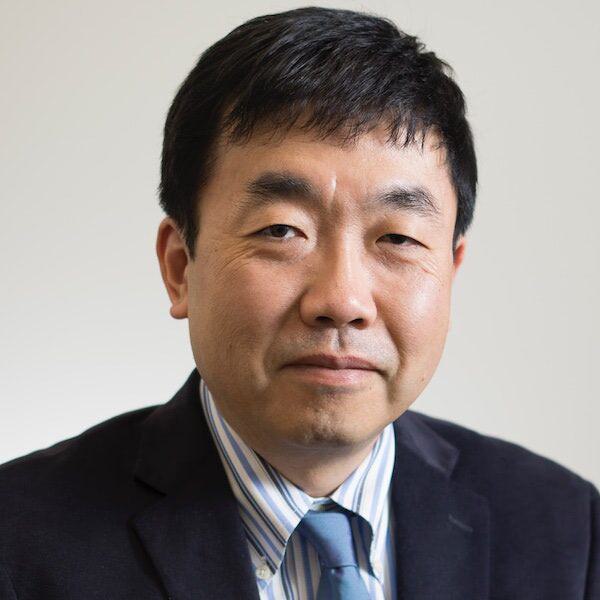- Undergraduate
Bachelor's Degrees
Bachelor of ArtsBachelor of EngineeringDual-Degree ProgramUndergraduate AdmissionsUndergraduate Experience
- Graduate
Graduate Experience
- Research
- Entrepreneurship
- Community
- About
-
Search
All Thayer Events
An engineering approach to translational drug discovery
Special Seminar: Targeting Coagulation in the PDAC Tumor Microenvironment
May
09
Tuesday
12:00pm - 1:00pm ET
Auditorium E, DHMC/Online
Livestream: https://go.d-h.org/global1video
An engineering approach to translational drug discovery
Pancreatic ductal adenocarcinoma (PDAC) is the fourth leading cause of cancer death in the US, with a dismal 12% five-year survival rate. This poor prognosis attributes to several factors, including its complex tumor microenvironment (TME) with a desmoplastic stroma, which facilitates tumor growth/invasion, chemoresistance, and immunosuppressive TME. It also poses physical barriers to effective drug delivery. Thus, the stroma has been targeted to inhibit its pro-tumor roles and enhance the delivery and efficacy of drugs. But many of these strategies were not successfully translated, and even several recent studies have suggested the stroma may also have anti-tumor roles. In this context, my group performs translational engineering research to discover new therapeutic strategies to reprogram the PDAC stroma without compromising its anti-tumor roles.
In this talk, I will present our recent effort to test a hypothesis that the coagulation system in the PDAC TME can be targeted to reprogram PDAC stroma to overcome chemoresistance, drug delivery barriers, and immunosuppressive TME. For this research, we have been developing new in vitro microfluidic tumor models of the normal and cancerous pancreas. In conjunction with genetically engineered cells and preclinical animal models, the microfluidic PDAC platforms are further used to identify the role of key molecular targets of the coagulation system and to evaluate the effects of their pharmacological inhibition to develop effective strategies to reprogram the PDAC stroma. The latest results are further discussed with future research plans. I will conclude the talk by sharing my teaching philosophy to educate engineering students in this new and exciting area of translational engineering for oncology.
Co-sponsored by Dartmouth Cancer Center.
About the Speaker(s)
Bumsoo Han
Professor of Mechanical & Biomedical Engineering, Purdue University

Bumsoo Han is a professor of mechanical engineering and biomedical engineering at Purdue University. He is also a program leader of the Drug Delivery and Molecular Sensing Program of the NCI-designated Purdue Institute for Cancer Research. His broad research interests are in transport processes in biological systems. Current research efforts are focused on the transport of drugs and nanoparticles at the tumor microenvironment, disease-on-chip models, and cell-fluid-matrix interaction in the stromal tissues.
He received his PhD in mechanical engineering from the University of Minnesota and his MS and BS from Seoul National University in Korea. After his PhD, he was a postdoc fellow in mechanical and biomedical engineering at the University of Minnesota. He received the US DOD Postdoctoral Award for Breast Cancer Research, NSF CAREER Award, US AFOSR Faculty Fellowship (predictive toxicology), and Richard Skalak Best Paper Award from the ASME Journal of Biomechanical Engineering. In addition, he is a Fellow of ASME and BSF Schaefer Outstanding Young Faculty Scholar of Purdue. He also received the Faculty of Excellence Early Career Research Award from Purdue and the Brain Pool Korea Fellowship from the National Research Foundation of Korea. Outside of research and teaching, he is an amateur marathoner and hopes to someday run the Boston Marathon.
Contact
For more information, contact Ashley Parker at ashley.l.parker@dartmouth.edu.
